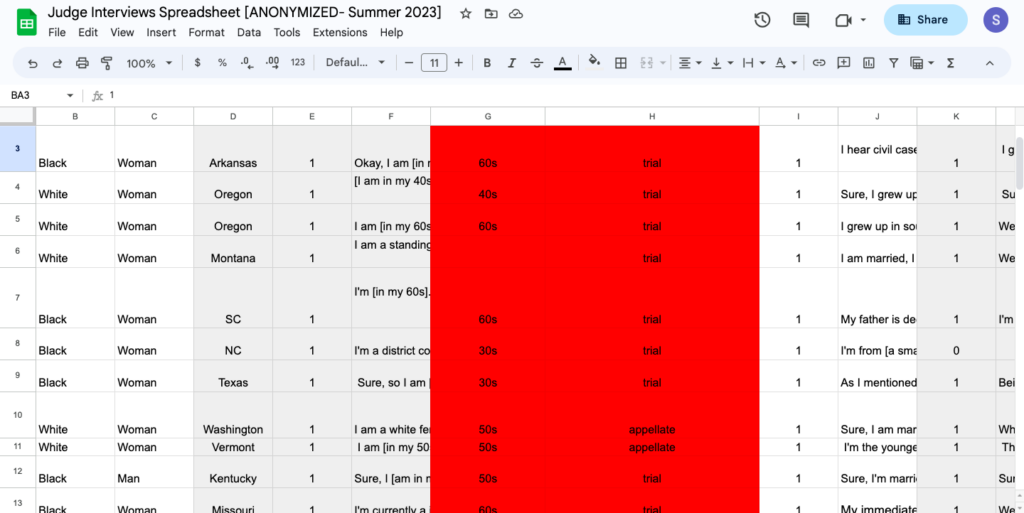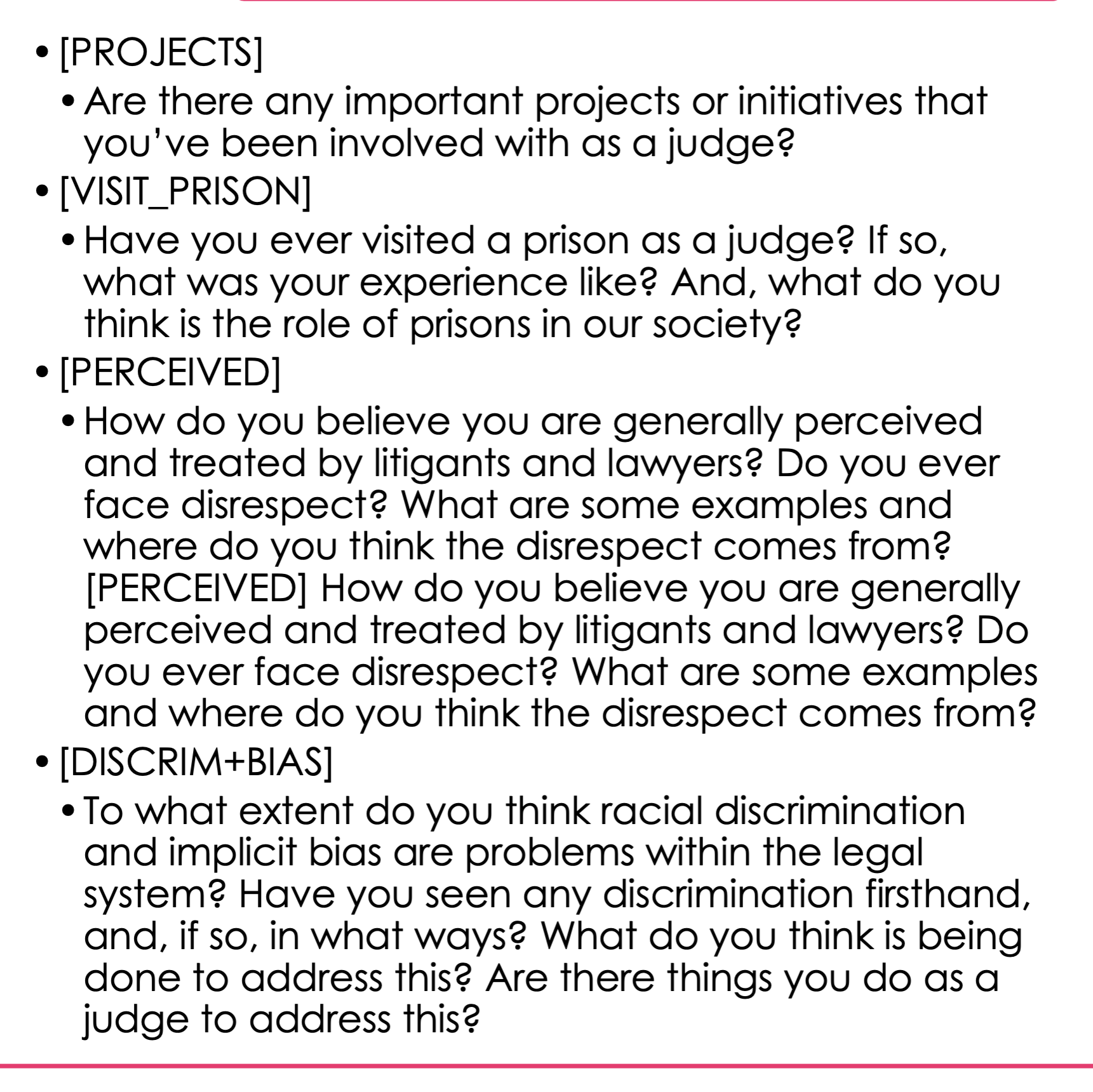Shyasia Arnold ’26
Being a black woman is a thing unto itself, separate and apart from being a woman and separate and apart from being black. The intersectionality is really important.
A Black woman judge’s response to a question asking about her identity
A judge’s impartiality is essential to upholding justice. However, can judges fully divorce their experiences and identities from themselves? For this summer’s project, I worked alongside Professor Means. The project, Researching, Writing, and Publishing in Law and Courts, examines the effects of judicial diversity–or absence of–by generating patterns and themes between Black and White judges. The themes drawn from the data, combined with research, challenges the notion of judicial impartiality and affirms the importance of judicial diversity.
Between 2019-2021, data for this project was initially gathered through a survey of an equal number of Black and White state court judges. Additionally, there were interviews with around 100 Black and White state court judges. Judges were asked to share their upbringings, pre-adulthood life experiences, judicial behavior, philosophies, perspectives and more. This summer’s work involves the continuation of organizing, cleaning, anonymizing, analyzing, researching, and writing up the data analysis.
The data analysis will then be written into a paper that I am co-authoring with Professor Means and others. The paper focuses on Black women judges and is broken up by race and gender. My contributions toward the paper focus on the history of Black women in politics and the ways in which Black women judges behave on/off the bench. Additionally, I wrote a data-analysis on judicial projects that Black women judges are involved in, which highlights patterns of Black women judges’ values in relation to their identities and the programs that they start.
Overall, using the gathered data to illuminate the importance of judicial diversity while challenging notions of judicial impartiality, the data and project aims to provide insight into how judges’ backgrounds, gender identities, and racial identities impact their roles as judges.


